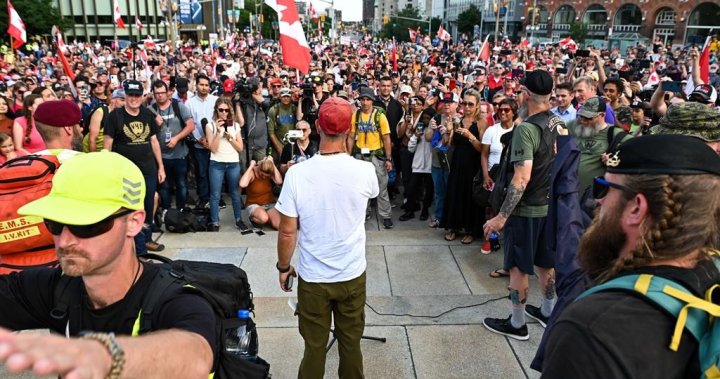
‘Good PR’: Why anti-hate experts are urging politicians to step up vetting practices
Global News
Anti-hate and extremism researchers, who had been monitoring Stephanie McEvoy for years, are asking if political parties and staff need to step up their vetting practices.
Before politicians attend any event, it’s standard practice for them to look into who is going to be there — though the techniques used for this screening process might vary, some political strategists say.
Mistakes can lead to embarrassing gaffes at best, they say, and widespread condemnation at worst.
“We’ve seen this on all sides of the political spectrum,” said Garry Keller, a conservative strategist with StrategyCorp, who worked as an adviser to former prime minister Stephen Harper.
“We’ve seen stories where all parties have had questions raised in the media about attending certain events and being photographed with certain people.”
Fresh questions are being raised about these vetting processes after Global News learned that a march multiple politicians attended earlier this summer was organized by a person who has a history of posting Islamophobic comments online, who spoke at a rally attended by a self-proclaimed white nationalist, and who has expressed support for extremist groups in the past.
Anti-hate and extremism researchers — who say they have been monitoring this individual for years — say political parties and staff need to step up their vetting practices.
“(Politicians) absolutely have a responsibility to research and figure out who is the person who’s putting this (event) on,” said Elizabeth Simons, deputy director of the Canadian Anti-Hate Network.
“I mean, that’s just good PR. Why wouldn’t (their) team be looking at who the organizer is? And if they did look at who the organizer is, were they okay with that?”





















 Run 3 Space | Play Space Running Game
Run 3 Space | Play Space Running Game Traffic Jam 3D | Online Racing Game
Traffic Jam 3D | Online Racing Game Duck Hunt | Play Old Classic Game
Duck Hunt | Play Old Classic Game











